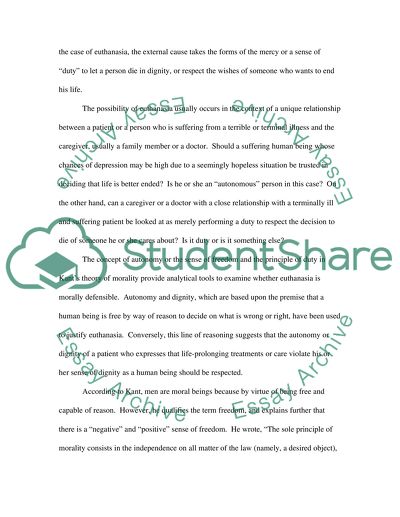Cite this document
(“Euthanasia and Kants Morality Essay Example | Topics and Well Written Essays - 1500 words”, n.d.)
Euthanasia and Kants Morality Essay Example | Topics and Well Written Essays - 1500 words. Retrieved from https://studentshare.org/miscellaneous/1510639-euthanasia-and-kants-morality
Euthanasia and Kants Morality Essay Example | Topics and Well Written Essays - 1500 words. Retrieved from https://studentshare.org/miscellaneous/1510639-euthanasia-and-kants-morality
(Euthanasia and Kants Morality Essay Example | Topics and Well Written Essays - 1500 Words)
Euthanasia and Kants Morality Essay Example | Topics and Well Written Essays - 1500 Words. https://studentshare.org/miscellaneous/1510639-euthanasia-and-kants-morality.
Euthanasia and Kants Morality Essay Example | Topics and Well Written Essays - 1500 Words. https://studentshare.org/miscellaneous/1510639-euthanasia-and-kants-morality.
“Euthanasia and Kants Morality Essay Example | Topics and Well Written Essays - 1500 Words”, n.d. https://studentshare.org/miscellaneous/1510639-euthanasia-and-kants-morality.


